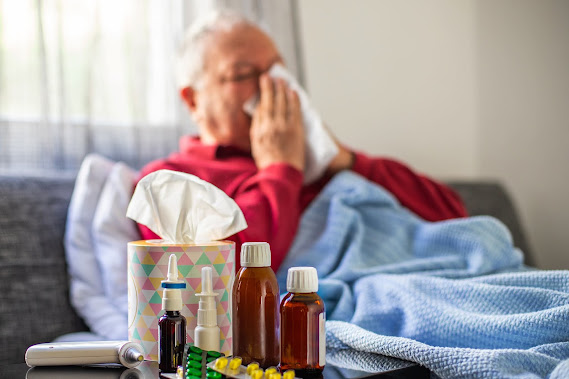Hay Fever: Symptoms, Causes, and Treatment
Hay Fever: Symptoms, Causes, and Treatment
Hay is not a common source of this condition, and it does not result in a fever. This famous name was popularized by early reports of sneezing, nasal congestion, and eye irritation when gathering field hay. The exact word for this allergic reaction is allergic rhinitis. Rhinitis means "nose inflammation" and is a derivation of rhino, which means "nose."
Symptoms Of Hay Fever
The symptoms of hay fever commonly include Nasal congestion, a runny nose with clear mucus, sneezing, nose eye itching, and excessive tear production in the eyes are all symptoms as explained by the Travel Clinic in Hackbridge. The postnasal discharge of clear mucus frequently causes coughing. The loss of one's sense of smell is widespread, while the loss of one's sense of taste occurs on occasion.
The symptoms of the eyes are known as allergic conjunctivitis. According to the Travel Clinic in Wallington, these allergy symptoms frequently harm one's quality of life and general health.
Causes Of Hay Fever
Anything
can trigger an allergy. However, this allergic rhinitis is caused by proteins.
Typically, allergic rhinitis develops due to an allergic person coming into
repeated contact with plant protein.
The pollen carried by the wind is inhaled. These pollen particles, typically the plant's male sex cells, are tiny. Pollen, even though it usually is invisible in the air, is a potent allergen stimulant.
The pollen settles in the nasal lining tissues and other sections of the respiratory tract, triggering an allergic reaction. It is important to book a Hay Fever treatment appointment as early as possible.
Treatment Of Hay Fever
The most effective way to control allergy symptoms is to avoid recognized allergens and
visit the Hay Fever treatment clinic. The frequent attempts to manage the
environment and aid in the resolution of symptoms. However, avoiding allergies is not always
straightforward.
Travel The clinic in Hackbridge suggests if avoidance is not possible or does not reduce symptoms, further therapy is required. Many individuals respond to antihistamines, which are drugs that fight the effects of histamine.
Antihistamines do not prevent the generation of histamine or the conflict between IgE and antigen. Travel Clinic in Wallington describes Antihistamines, therefore, do not stop the allergic reaction but rather protect tissues from the repercussions of the allergic response.




Comments
Post a Comment